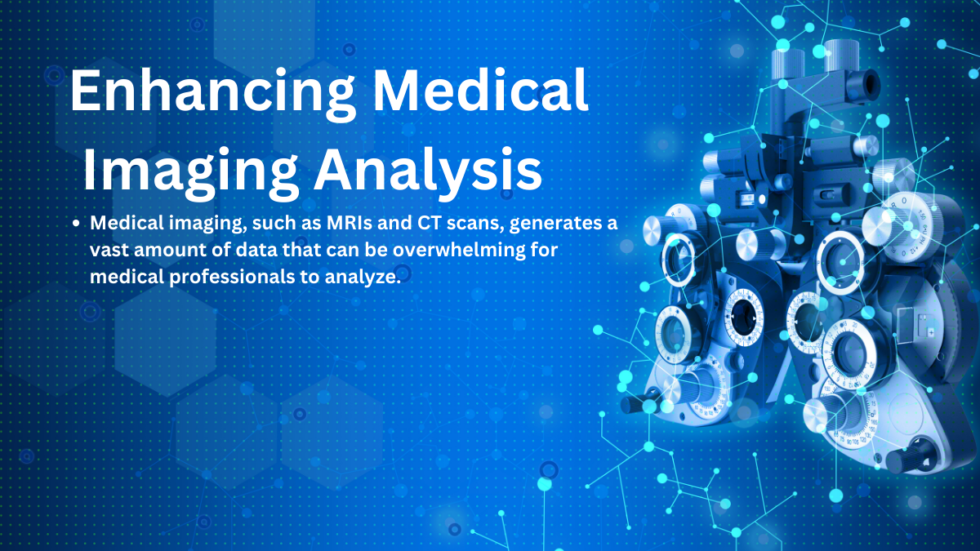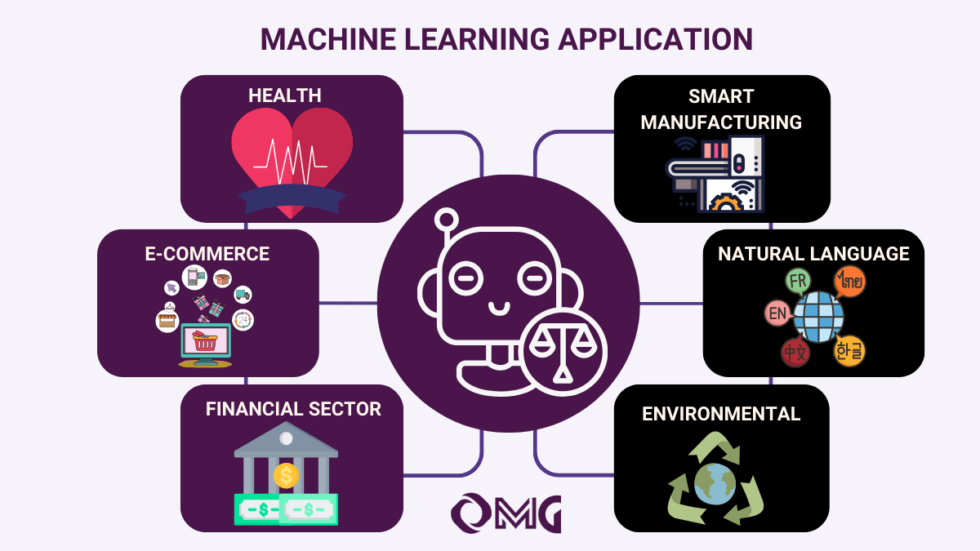In today’s fast-paced world, machine learning has emerged as a groundbreaking technology with far-reaching applications across various industries. Its ability to process and analyze vast amounts of data has led to the development of innovative solutions that drive efficiency, accuracy, and insights. Let’s explore some of the most impactful machine learning applications that are reshaping industries and shaping the future.
Introduction
Machine learning’s extraordinary ability to extract meaningful patterns from complex data sets has led to transformative breakthroughs across various sectors. As we continue to witness rapid advancements, the potential for machine learning to revolutionize industries is limitless.
Healthcare Revolution: Diagnosis and Treatment
In the healthcare industry, machine learning is revolutionizing the way medical conditions are diagnosed and treated.
Enhancing Medical Imaging Analysis
Medical imaging, such as MRIs and CT scans, generates a vast amount of data that can be overwhelming for medical professionals to analyze. Machine learning algorithms can quickly and accurately analyze these images, assisting doctors in identifying anomalies, tumors, and other critical details.

Personalized Treatment Plans
Machine learning also enables the development of personalized treatment plans for patients. By analyzing patient data, including medical history, genetic information, and treatment outcomes, algorithms can recommend the most effective treatment options, increasing the chances of successful recovery.
E-Commerce Enhancement: Customer Experience
In the realm of e-commerce, machine learning is enhancing the customer experience in unprecedented ways.
Recommender Systems
Recommender systems leverage machine learning algorithms to analyze customer preferences and behavior. These systems suggest products or services that align with a customer’s interests, boosting sales and customer satisfaction.
Dynamic Pricing Strategies
Machine learning enables e-commerce platforms to implement dynamic pricing strategies. Algorithms analyze market trends, demand, and competitor prices in real time, allowing businesses to adjust their prices for maximum profitability.
Financial Sector Transformation: Fraud Detection
The financial sector has embraced machine learning to tackle the growing challenge of fraud.
Real-time Transaction Monitoring
Machine learning algorithms monitor financial transactions in real time, identifying unusual patterns that may indicate fraudulent activity. This proactive approach helps financial institutions prevent fraud before it occurs.
Credit Scoring Automation
Traditional credit scoring models often rely on limited factors, leading to inaccurate assessments. Machine learning considers a broader range of data, providing more accurate credit scores and reducing the risk of lending to high-risk individuals.
Smart Manufacturing: Predictive Maintenance
Machine learning is optimizing the manufacturing process by enabling predictive maintenance.
Equipment Failure Prediction
By analyzing sensor data from manufacturing equipment, machine learning algorithms predict when machinery is likely to fail. This allows manufacturers to schedule maintenance before breakdowns occur, minimizing downtime.
Optimal Production Scheduling
Machine learning algorithms optimize production schedules based on factors such as demand, resource availability, and equipment performance. This leads to efficient production processes and reduced operational costs.
Transportation Advancements: Autonomous Vehicles
Autonomous vehicles are a prime example of how machine learning is transforming transportation.
Sensor Data Processing
Autonomous vehicles rely on sensors to perceive their environment. Machine learning algorithms process sensor data to make real-time driving decisions, ensuring safe navigation.
Safe Navigation Algorithms
Machine learning algorithms enable vehicles to navigate safely, even in complex and dynamic environments. These algorithms continuously analyze data from sensors to make split-second decisions that prevent accidents.
Natural Language Processing: Chatbots and Language Translation
Machine learning’s natural language processing capabilities have revolutionized communication.
Natural Language Understanding
Chatbots equipped with machine learning understand and respond to human language, providing customer support and assistance 24/7. This improves user experiences and reduces the workload on human agents.
Multilingual Communication
Language translation powered by machine learning bridges communication gaps across different languages. It enables real-time translation of spoken or written language, facilitating global interaction.
Environmental Impact: Climate Change Analysis
Machine learning plays a pivotal role in understanding and mitigating the effects of climate change.
Weather Pattern Prediction
Machine learning models analyze historical weather data to predict future weather patterns. These predictions aid in disaster preparedness and resource allocation during extreme weather events.
Ecosystem Monitoring
Machine learning algorithms analyze data from satellites and ground sensors to monitor changes in ecosystems. This data helps scientists understand the impact of human activities on the environment.
Entertainment and Content Creation: Creative Assistance
Machine learning’s creative capabilities are transforming the entertainment industry.
Image and Video Generation
Machine learning algorithms can generate images and videos based on certain criteria. This technology is used in various creative applications, from special effects to video game design.
Music Composition
Machine learning is used to compose music by analyzing existing compositions and creating new pieces based on established patterns. It offers musicians new avenues for artistic expression.
Agricultural Innovation: Precision Farming
In agriculture, machine learning is driving precision farming practices.
Crop Health Assessment
Machine learning algorithms analyze data from drones and sensors to assess crop health. Farmers can detect early signs of disease or nutrient deficiencies, leading to targeted interventions.
Automated Irrigation
Machine learning algorithms determine optimal irrigation schedules based on soil moisture levels, weather forecasts, and crop types. This conserves water and promotes sustainable farming practices.
Cybersecurity Enhancement: Threat Detection
Machine learning is bolstering cybersecurity efforts by identifying emerging threats.
Anomaly Detection
Machine learning algorithms establish baseline behavior for systems and networks. They can then detect anomalies that deviate from the norm, signaling potential security breaches.
Behavioral Analysis
Machine learning monitors user behavior to identify unusual patterns that may indicate unauthorized access. This proactive approach enhances data security and safeguards sensitive information.
Education Transformation: Personalized Learning
Machine learning is revolutionizing education through personalized learning experiences.
Adaptive Learning Platforms
Adaptive learning platforms use machine learning to tailor educational content to individual students’ needs. This approach improves learning outcomes by adapting the pace and difficulty of coursework.
Student Performance Prediction
Machine learning algorithms analyze student performance data to predict academic success. Educators can identify students who may need additional support and interventions.
Energy Management: Consumption Optimization
Machine learning is optimizing energy consumption and management.
Smart Grid Management
Machine learning algorithms optimize energy distribution in smart grids. They analyze consumption patterns and adjust energy delivery to minimize waste and reduce costs.
Energy Usage Forecasting
By analyzing historical data and external factors, machine learning algorithms forecast energy consumption. This helps utilities plan for peak demand periods and ensure a stable energy supply.
Retail Revolution: Inventory Management
Machine learning is revolutionizing inventory management in the retail sector.
Demand Forecasting
Machine learning algorithms analyze historical sales data, seasonal trends, and external factors to forecast product demand accurately. This helps avoid situations of excess inventory or insufficient stock levels.
Stock Replenishment Automation
Machine learning triggers automated stock replenishment orders when inventory levels reach predetermined thresholds. This streamlines supply chain management and ensures product availability.
Conclusion
Machine learning’s impact is evident across a diverse range of industries, from healthcare to entertainment, agriculture to finance. Its ability to extract insights from data and automate complex processes is driving efficiency, innovation, and progress. As technology continues to evolve, we can expect even more transformative applications of machine learning that will shape the way we live and work.

